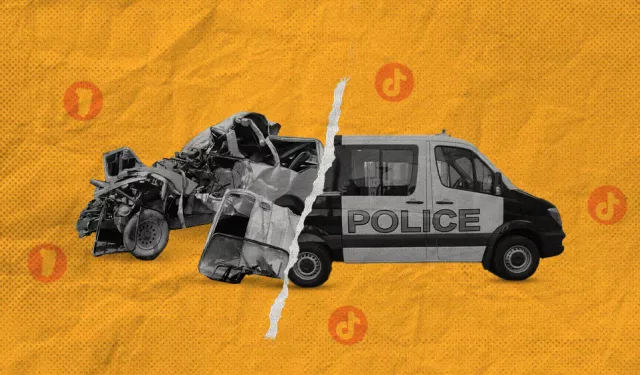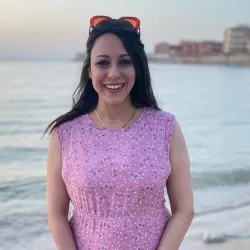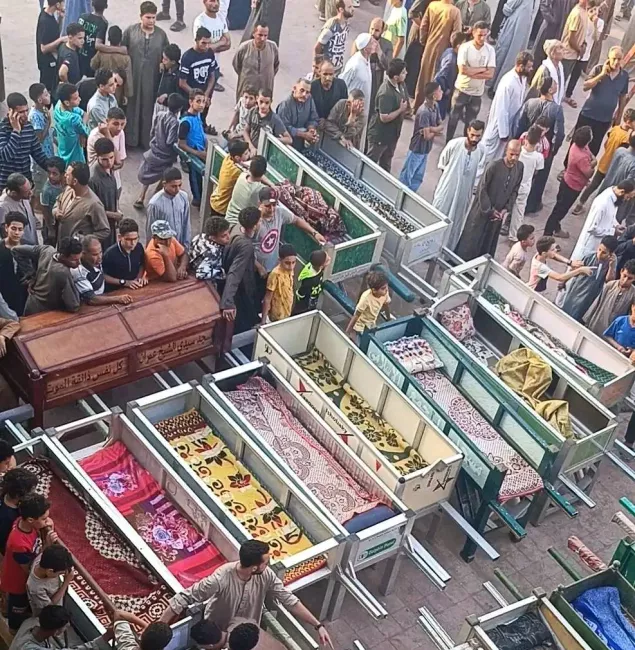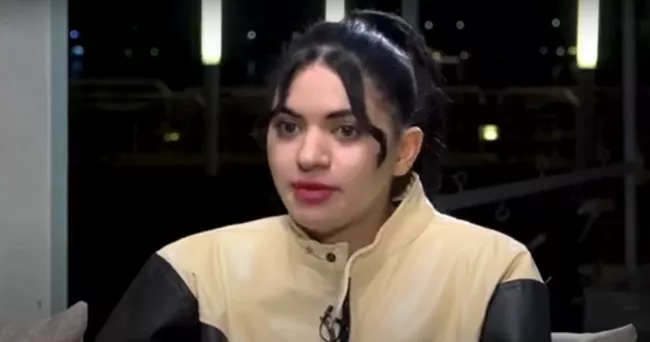
Women, TikTok, and the crime of survival in Egypt
In a matter of weeks, two events dominated Egypt’s public discourse. On the surface, they seemed entirely unrelated. One was the tragedy of Kafr Al-Sanabsa girls—18 young women who died on their way to work. The other was a campaign of arrests targeting a group of TikTok content creators.
The time and space separating these incidents seem to weaken their connection, but they both reveal the fight of poor women to survive in a ruthless economy and a state-controlled public sphere that offers them nothing but the margins— then punishes them for being there.
Beneath both incidents lies a web of structural poverty, authoritarian patriarchy, and social classism, where the state and society do not seek to end impoverishment. Instead, they manufacture tools of discipline to push women back into poverty obedient, invisible, and silent.
The struggle to survive
Egyptian women face structural impoverishment that blocks any path to economic independence.
According to Egypt’s Central Agency for Public Mobilization and Statistics/CAPMAS, women’s participation in the formal labor market stands at only 15%. Female unemployment is 37.8%, compared to only 9.8% for men—even though nearly half of all university students (48.8% of 3.7 million) are women. In this system, education becomes a certificate with no economic value.
In rural areas, the crisis is worse.
The poor quality of basic education, instead of resisting marginalization, entrenches it. This leads to limited job skills and fewer chances to escape poverty, with most women's work concentrated in the informal sector—a space devoid of legal protection or social security.
According to Egypt’s Labor Market Panel Survey, 27% of employed women were working informally in 2018. That number dropped to 18% by 2023, but the risks remain.
This reality is reflected in the structure of social protection programs, as women make up 75% of those enrolled in the Takaful cash assistance program. This points to the sheer scale of economic and gender gaps—and to how “care” becomes a fragile substitute for empowerment, ultimately increasing the risks women face when trying to survive poverty.
Women’s survival strategies are many, ranging from seasonal crop harvesting to TikTok live streams. Yet the risks of such work are constant—paltry wages, no insurance, and a lack of dignity in the workplace, compounded by the threat of legal harassment, public shaming, or death by silence or violence.
Ultimately, all roads lead back to precarity.
Misplaced rage
These stories show how public anger often turns away from root causes, fixating instead on superficial symptoms. Rather than asking urgent questions about policies, inequality, or economic and social injustice; the rage is redirected. The state, responsible for this impoverishment, escapes scrutiny. The women who try to survive it are targeted.
After the Kafr Al-Sanabsa crash, public grief should have focused on the unsafe transport and humiliating conditions these young women endured. Instead, comparisons were drawn between the “honorable” breadwinners—hailed as martyrs—and a TikToker named Suzy El Ordoneya/Suzy the Jordanian, criticized for her behavior online. Suzy dared to deviate—not just in her words, but by earning an income and independence.
These comparisons expose a classist and patriarchal bias. Women who carve out different survival paths are not only demonized, but the blame for their perceived transgressions is extended to their entire families.
In Kafr Al-Sanabsa, poor parents were blamed for marrying and having children “irresponsibly,” as though they were not citizens entitled to protection. In the case of TikTok creators, the blame turns to parents, accused of abandoning their moral duty to “control” their daughters.
When poor women use social media to express themselves or earn money, the middle class responds with moral outrage laced with class contempt. Their attempts to survive are framed as threats to the social order, which opens the door to violence and incites punishment.
Women like Om Sagda who don’t conform to beauty standards, who speak in local dialects dismissed as vulgar, become targets of mockery and recycled memes. Society tolerates their presence as comedy, only until they start earning money. Then, suddenly, they threaten “family values.”
It’s acceptable, even entertaining, for poor women to be consumed as internet content. But once they profit from that same attention and gain independence, the outrage begins.
Let’s punish Suzy
TikToker Suzy El Ordoneya went viral for a now-infamous video in which she raised her voice at her father, twisting his words into a sly, teasing remark. Her tone sparked national outrage.
She was arrested three times and charged with “joining a banned group”. The crowd applauded, like a nation driven by contempt for women, eager to humiliate its daughters.
Few paused to see her for who she truly was: a teenager raised in poverty and neglect, with a father who stole her earnings and offered no protection. In a mirror of a state that abandons its poor, he was spared blame, while she became a symbol of moral failure. The societal conditions that made her vulnerable were ignored.
Perhaps she reminds people of their own powerlessness, their own silence in the face of state oppression. They resent that Suzy earns more than doctors and engineers. As if she were the reason for wage stagnation, currency devaluation, or the collapse of public infrastructure.
As if she’s to blame for the Middle East peace process!
This blame is rooted in a patriarchal mindset that the regime seizes upon to present itself as the guardian of so‑called “public values.” The arrest and public shaming of TikTok women functions as a ritual of discipline—a spectacle meant to warn any woman who dares seek economic independence beyond the reach of state control.
It mirrors what Angela Davis has described in her analysis of prison systems, as she argued that “imprisonment is increasingly used as a strategy of deflection off the underlying social problems—racism, poverty, unemployment, lack of education, and so on.”
Selective law, nationalized public sphere
Vague laws make such abuses easy. Article 25 of Egypt’s cybercrime law punishes anyone who “violates family values in Egyptian society” with imprisonment and fines. But the law doesn’t define what these “values” are—or how they can be violated.
And which “family” does the law protect? Urban or rural? Rich or poor? Why do these values only apply to poor women online? Why aren’t bribery, corruption, or structural impoverishment seen as violations of family life? Why are only poor women punished when they try to survive?
Why aren’t TikTok creators from wealthy backgrounds charged with these crimes? This isn’t a call to arrest them—but a question about the selective use of legal tools that turn women’s bodies into symbols of state authority.
What does “misuse of social media” even mean? Why isn’t it used against those who incite sectarian violence or hatred toward women? Social media overflows with calls for violence.
One lawyer, who filed a case against TikTok girls, once demanded the Interior Ministry assign a police officer to rape the arrested women in prison. Another lawyer filed charges against them “for insulting Egyptian women,” as if the existing charges weren’t enough.
What we need is justice
In this system, the law doesn’t protect victims—it disciplines women and the poor. The public sphere is nationalized to serve authority. With no safe space for protest and no genuine avenue for public outrage over economic policy, collective anger becomes misdirected.
As a woman and as an Egyptian, I believe the real insult we suffer is the denial of political, social, and economic empowerment. The problem is not another woman expressing her identity, her culture, or her way of life on her personal platforms.
I may be accused of siding with women—especially poor women. I won’t deny it. Like them, I’m a woman who faces discrimination. I have my own daily struggles to survive, though I recognize my relative privilege.
But my deeper allegiance is to a culture of acceptance of difference, to freedom of thought and expression—cornerstones of any real social transformation and the foundation of a just society. A society grounded in the strength of its laws, not the cruelty of its punishments.
We can always avoid content that offends our tastes or values, but we cannot afford to ignore the truth: vague laws put us all at risk. They criminalize poverty, womanhood, and free expression—rather than confronting the roots of injustice.
What we need today is not more censorship or punishment, but a radical shift in education, social, and economic policy. We need quality education tied to a fair job market and unconditional social protection. We need a justice system based on clear legal texts—not moral panic or prejudice.
Most importantly, we need a public space that protects acceptance of difference instead of silencing it.
Only by reforming these policies can our society build real tools to manage acceptance of difference and direct anger toward constructive change. A society that respects personal expression and values free speech. A society that supports its cultural and artistic institutions so they can elevate, critique, or simply ignore bad content—instead of demanding its erasure or revenge.
A society that knows the worst of the internet can be silenced with one simple action: the block button.


